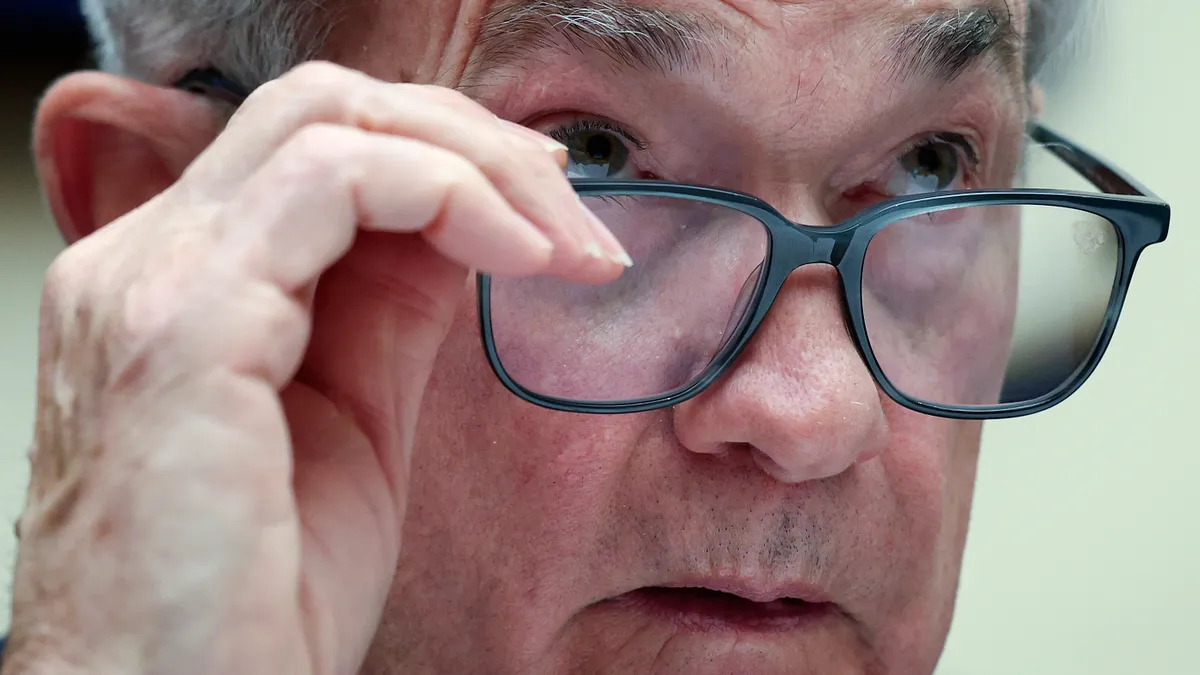Dive Brief:
- Federal Reserve Chair Jerome Powell said policymakers are dead set on averting persistently high inflation even though their effort to rein in price gains from a 40-year high will probably cause hardship.
- “We are committed to and will succeed in getting inflation down to 2%,” Powell said Wednesday. “The process is likely — highly likely — to involve some pain, but the worst pain would be from failing to address this high inflation and allowing it to become persistent.”
- Inflation from shocks such as Russia’s invasion of Ukraine and pandemic-induced supply chain constraints have increased the urgency and challenge of curbing price gains, Powell said during a webcast hosted by the European Central Bank. “The risk is that because of the multiplicity of shocks you start to transition to a higher inflation regime and our job is to prevent that from happening and we will prevent that from happening.”
Dive Insight:
Powell indicated that the Fed will persist in rapidly raising interest rates despite the risk that higher borrowing costs may undercut the labor market and cause a recession.
“We think that there are pathways for us to achieve that — to achieve the path back to 2% while still sustaining a strong labor market,” he said. “There’s no guarantee we can do that — it’s obviously something that’s going to be quite challenging.”
The consumer price index rose last month more than many economists expected, surging 8.6% year-over-year in the biggest jump since December 1981.
In response, the Fed on June 15 raised the main interest rate 0.75 percentage point in the largest single increase since 1994. Powell said then that policymakers will probably increase the federal funds rate either 0.5 percentage point or 0.75 percentage at the end of a two-day meeting on July 27.
Price pressures have eroded expectations among consumers, whose spending drives about 70% of U.S. economic growth.
The Consumer Expectations Index, measuring consumers’ short-term outlook for income, business and the job market, fell this month to the lowest level since March 2013, the Conference Board said Tuesday.
“Consumers' grimmer outlook is driven by increasing concerns about inflation, in particular rising gas and food prices,” according to Lynn Franco, senior director of economic indicators at the Conference Board. Slumping expectations suggest “weaker growth in the second half of 2022 as well as growing risk of recession by year end.”
Powell said he believes the U.S. economy can weather higher borrowing costs and the Fed’s fight against inflation.
“The U.S. economy is actually pretty strong,” he said, noting “very, very high job growth” each month. “Households are in very strong financial shape” and businesses hold ample cash and show “very, very low rates of default.”
“Overall, the U.S. economy is well positioned to withstand tighter monetary policy, we think,” Powell said.
The Fed needs to see some months of falling inflation before it begins to ease its policy tightening, Powell said on June 15, noting that inflation slowed last summer only to accelerate thereafter.












